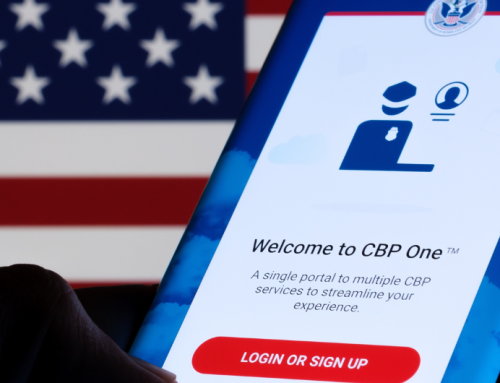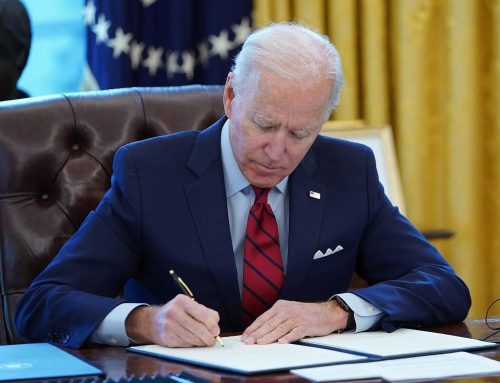Opening a Business with an F-1 Visa
 Many international students who are studying in the United States would like to start their own business or open a company, but are unsure if it is permitted by the immigration law. Below are the answers to some of the frequently asked questions.
Many international students who are studying in the United States would like to start their own business or open a company, but are unsure if it is permitted by the immigration law. Below are the answers to some of the frequently asked questions.
Is it legal for a foreign student to create a company in the United States?
It is always legal for anyone to create, own, or buy shares of a U.S. company, to buy property or register a company. You do not even have to physically be in the United States to buy property or register a company. There are no restrictions on who can own property in the United States.
However, it is important to remember that, unless you have work authorization such as a permission to work under F-1 Optional Practical Training (OPT), you cannot work in the United States – not even for your own company. The good news is that you can use your own company to apply for OPT with your school if you meet the requirements, one of which is that you have to work at least 20 hours per week. Remember that your OPT employment must be connected to the course of your study.
What kinds of tax liabilities are created for the student?
This is more of an accounting question. The tax liabilities are the same for an international student as they would be for anyone else. The only difference in taxation is between residents and non-residents of the United States. Whether or not you are an international student, you may want to consult a tax professional to discuss these intricacies.
How can creating a business affect future immigration processes for the student, as in applying for a green card or a change of status?
A company you have started can create a basis for a future green card application or an application for H-1B (specialty occupation) worker visa. Otherwise, starting your own company has no bearing on a future change of status or green card application, unless the United States Citizenship and Immigration Services (USCIS) decides that you have violated your student status by working without permission, which would cause problems.
Can the student use his/her own company to sponsor himself/herself?
You cannot directly sponsor yourself for an H-1B visa or a green card through your own company. An H-1B petition requires an employer-employee relationship between the petitioner and the beneficiary. Simply put, the petitioner (the employer) must be able to fire the beneficiary (the visa applicant) if he or she so chooses. If you are both the employer and the employee, you do not have the ability to fire yourself, which undermines the employer-employee relationship. Similarly, to sponsor someone for a green card through the PERM labor certification process, the petitioning employer must demonstrate that they have made a good-faith effort to find a U.S. worker instead of the foreign beneficiary. As the beneficiary and the employer, you will not be able to show that you made an honest effort to hire someone other than yourself.
However, if your company has a board of trustees or other independent decision-making body that could theoretically fire you and generally make independent hiring decisions, then your company might be able to sponsor you, as it would be possible to show the employer-employee relationship.
There are some visa categories that allow you to sponsor yourself for a visa or a green card through your own company. These include L-1A, Intracompany Transferee Executive or Manager; L-1B Intracompany Transferee Specialized Knowledge; E-2 Treaty Investors (your country of nationality must have a treaty with the United States; you can check the list of countries online); and EB-5 Immigrant Investor. To qualify, you must meet the specific requirements for each visa type, including investing a certain amount of money into the U.S. economy and hiring U.S. workers.
Can the student form partnerships and sign contracts regarding distribution of shares?
The student can form partnerships and sign contracts on behalf of his or her company, as long as it is not considered “work.” Remember that, unless you are legally authorized to work in the United States, you cannot perform work, even if it is for your own company, and even if you are not getting paid. What is or is not considered “work” is often a grey area, but a good rule of thumb is to ask yourself, “Can a particular task be done by someone I can hire?” If the answer is yes, then the USCIS is likely to consider a particular activity “work,” since U.S. workers could have been hired to perform it, and you are displacing them by performing these tasks yourself.
As the company owner, you are allowed to engage in management decision-making such as hiring workers, because these decisions must be made by the business owner. However, you cannot be regularly engaged in administrative work or sales without the appropriate work authorization. Signing contracts is generally fine; however, you should be mindful of the nature of such contracts. For example, a partnership agreement with another company is likely to be fine, but signing sales contracts with customers to sell merchandise would likely be considered “work” and be against the law for you to perform in F-1 status.
Attorneys at I.S. Law Firm have helped many international students to obtain, extend or change their F-1 status. We provide excellent legal support for small to mid-size businesses at all stages of development. To learn more about our services and for a consultation, please contact us at +1-703-527-1779 or via e-mail: [email protected].






